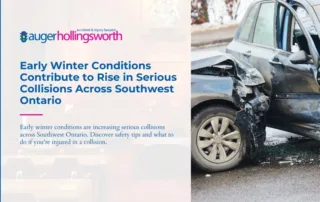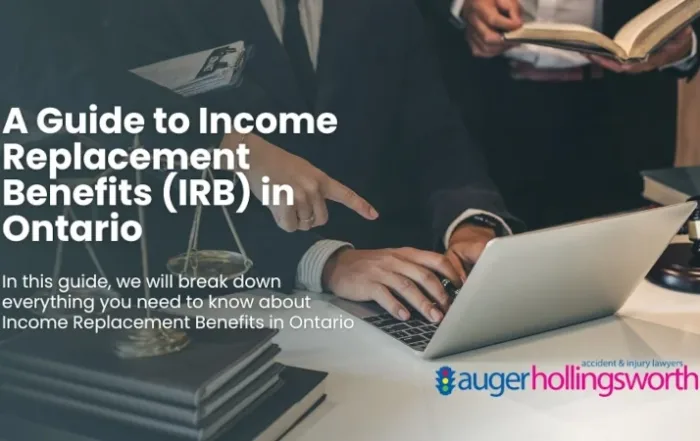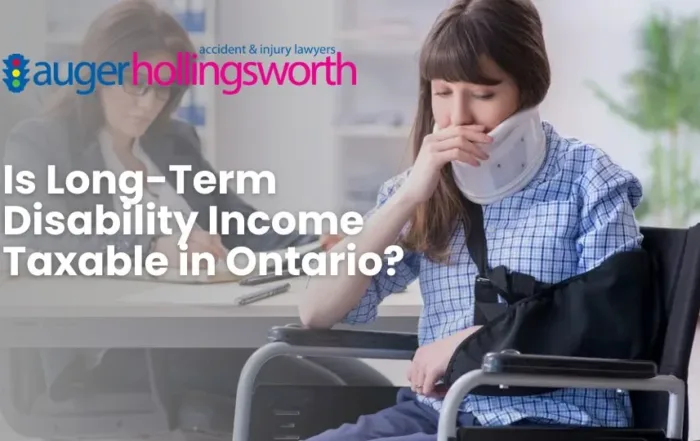Early Winter Leads to Surge in Collisions Across Ottawa and Eastern Ontario
Eastern Ontario experienced an early winter arrival that brought freezing temperatures, snow and rapidly changing road conditions. In a single day, the OPP responded to more than 120 collisions on highways such as Highway 417, Highway 416, Highway 401, and county routes throughout Prescott Russell, Stormont Dundas and Glengarry. [...]
First Snowfall Brings Hundreds of Collisions Across the GTA
The first snowfall of the season arrived early in the Greater Toronto Area and quickly caused widespread disruption on major highways. The OPP reported more than 300 collisions on routes including Highway 401, Highway 400, Highway 404, Highway 427, and the QEW. Even minor snowfall can create a ripple [...]
Early Winter Conditions Contribute to Rise in Serious Collisions Across the Southwest Ontario
Winter arrived early in Southwest Ontario this year, and communities throughout Grey, Bruce and Huron Counties have experienced a troubling increase in weather related collisions. The most tragic incident occurred near Hanover on a rural road offand quieter country routes. Temperatures fluctuate around the freezing mark, creating unpredictable icy patches. [...]
Why Written Notice Can Make or Break Your Ontario Slip and Fall Claim
Slip and fall accidents happen quickly, but the consequences can last months or even years. Since 2005, Auger Hollingsworth Accident & Injury Lawyers has guided thousands of injured Ontarians through the complex process of pursuing compensation after serious accidents, from icy sidewalks to poorly maintained parking lots. Our slip and [...]
How Evidence Can Make or Break Your Ontario Personal Injury Case
Why proper documentation is the foundation of a successful claim When you have been injured in a motor vehicle collision, slip and fall, or denied long-term disability (LTD) benefits, the success of your case hinges on one crucial factor: evidence. Most clients do not realize that even strong injuries [...]
Drive Safely, Ottawa: A Sobering Month of Tragedy on Our Roads
October has been a heartbreaking month on Eastern Ontario roads. In just a few short weeks, multiple serious and fatal collisions have occurred across the region — from Cumberland to Greely, from Prince of Wales Drive to Renfrew County. Each of these incidents represents a family forever changed, and [...]
Toronto’s Tough October: When Urban Speed Meets Human Cost
October 2025 tested Toronto’s commitment to safer streets. Within only a few weeks, police responded to a string of severe and fatal collisions — from Don Mills Road to Lansdowne Avenue. These incidents highlight the ongoing tension between a fast-moving city and the lives lived within it. Toronto’s Vision [...]
Brampton in October 2025: A Wake-Up Call for Street Safety
October 2025 has been a troubling month for the roads of Brampton. Serious crashes have occurred in multiple locations, involving pedestrians, motorcyclists, and multi-vehicle collisions. Each of these incidents reminds us that even in familiar neighbourhoods — the commute home, the evening outing — dangers persist. Our hearts go [...]
October 2025 Hamilton Collisions: When Familiar Roads Turn Dangerous
October 2025 brought a sobering reminder to everyone driving or walking in Hamilton: even roads you know well can be riskier than they seem. A series of serious collisions occurred across the city — from busy arterials to early-evening crossings, involving drivers, pedestrians, and multi-vehicle impacts. Our deepest sympathies [...]
October 2025 Mississauga Collision Round-Up
October 2025 was a difficult month for road users in Mississauga. A number of serious and tragic collisions occurred across different neighbourhoods — involving vehicles, pedestrians, and highway rollovers. These incidents serve as a strong reminder that even in well-known surroundings, the margin for error is small. Our deepest [...]
























